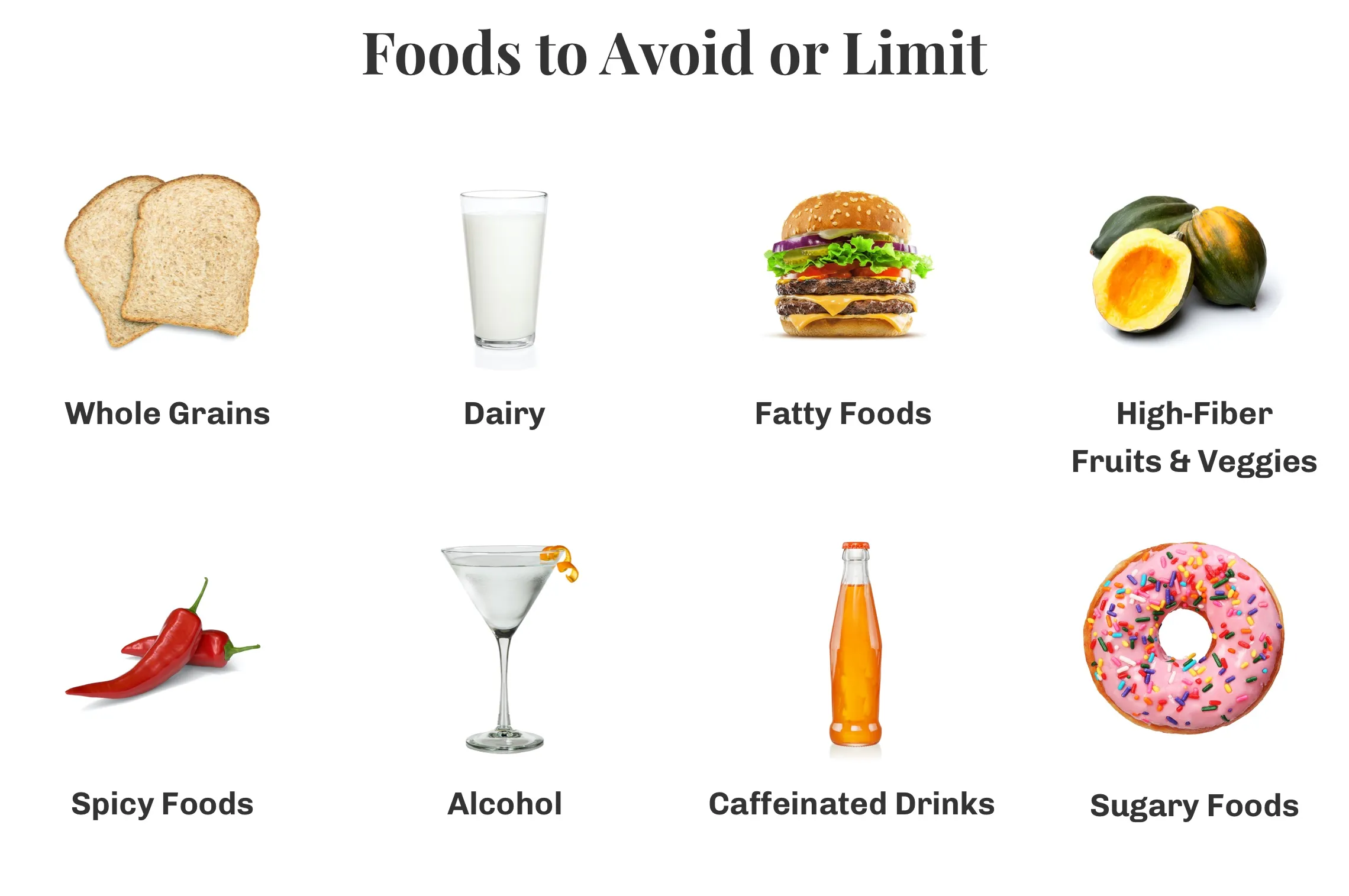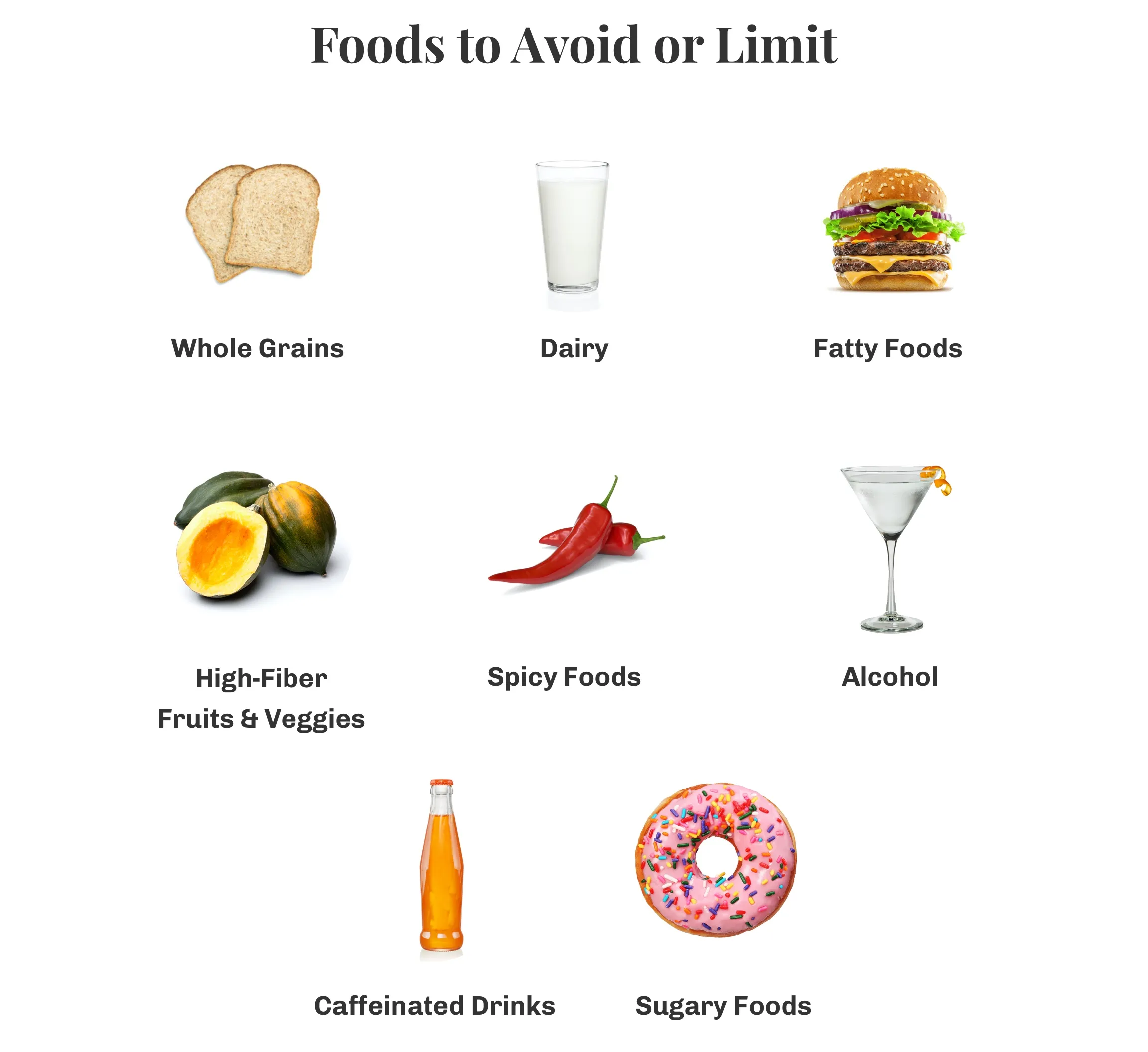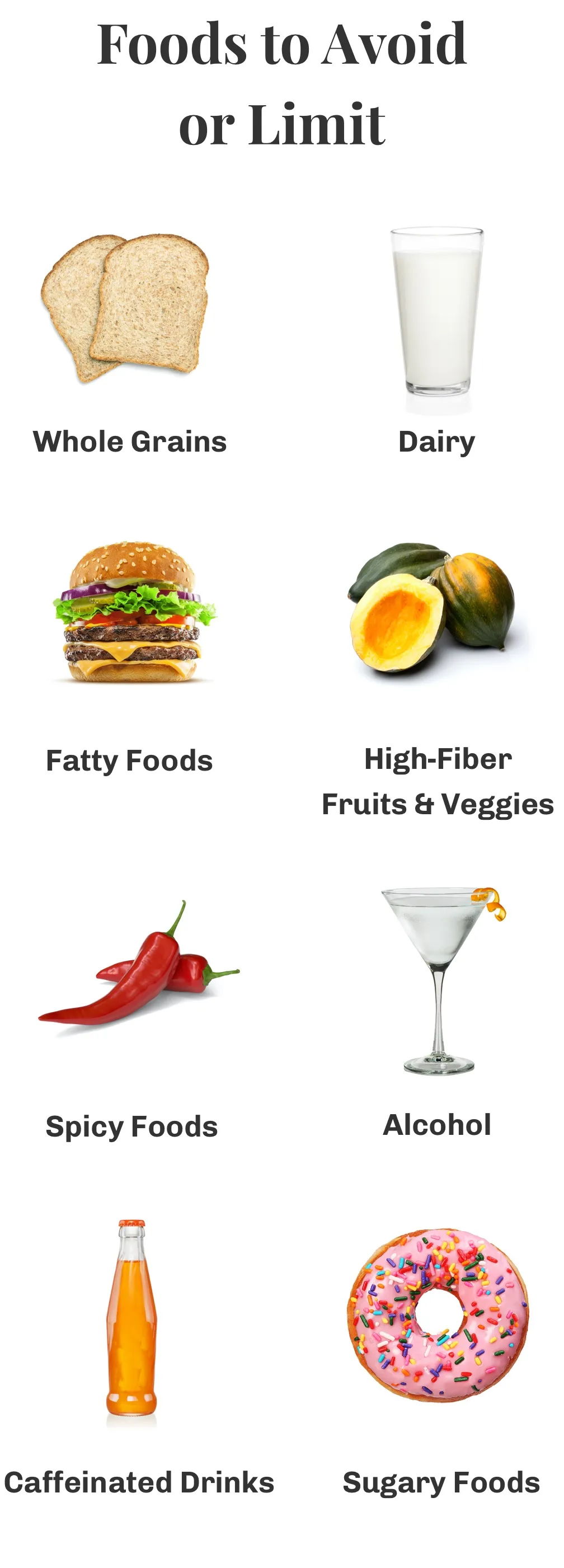What you eat and drink plays a big role in Crohn's disease. The right foods can ease symptoms, supply lost nutrients, and give your gut time to heal. But others may irritate your digestive system and cause flares.
Crohn's disease affects everyone differently, so there's no single eating plan that can help. What sets off your symptoms may not bother someone else.
To figure out how foods affect you, keep a daily food journal of everything you eat and drink. This can help you and your doctor pinpoint what leads to flares and worsens your symptoms. It can also determine if you're getting proper nutrition.
Based on your journal, your doctor may suggest an elimination diet. That's when you avoid certain foods for a few weeks, and then gradually start eating them again. This can confirm what foods you need to skip.
First, decide how you want to keep track of everything that you eat and drink throughout the day. Some people like to write it down in a small notebook, while others prefer using a website or app.
Then make notes about:
The date and time of everything you eat, from small snacks to large meals. Be specific about the type of food. For example, write down the toppings on your burger or ingredients in a smoothie. Don't forget to include sauces and condiments.
List how much of each food you ate each time. You may use the volume, such as 1/2 cup, or the number, like two slices of pizza.
Write down any usual symptoms you have after eating. Include when they started and how long they lasted.
The foods that trigger Crohn's disease symptoms can vary from person to person. But there are some common ones that you should watch out for. These foods can make your flares worse and might trigger cramping, bloating, and diarrhea in some people, too.



Whole grains are high in insoluble fiber, the kind that's harder to digest. It draws water and sweeps your gut clean. This may cause bloating, diarrhea, and pain in people with Crohn's disease.
If you're lactose intolerant or allergic to milk, dairy products may trigger symptoms. These include milk, cheese, and yogurt.
Give a pass to greasy, fatty foods. Fats are harder to digest, and a high-fat diet may cause stress and inflammation in your gut.
The skin and seeds of some fruits and vegetables are tough on your digestive system. They're high in insoluble fiber. Cruciferous veggies, such as broccoli and cabbage, may cause gas and bloating. You may need to swap in lower-fiber fruits, such as bananas, and cooked vegetables.
Fiery spices, such as chili and cayenne pepper, can irritate your digestive system. So you may need to stay away from extra-spicy food.
Go easy on the alcohol. Drinking may increase inflammation and cause problems in how your gut works.
Whole nuts and seeds could cause flares because they're a source of insoluble fiber. Plus, their pointy edges may irritate your digestive tract.
The caffeine in coffee, tea, and soda revs up your digestive system. It could lead to problems like diarrhea.
Sugar draws water into the gut, which can make diarrhea worse. Avoid foods with added sugars, such as sodas, candy, and pastries.
And watch out for certain sweeteners. Some are poorly absorbed by your gut, which may lead to symptoms. Look for products containing fructose, high-fructose corn syrup, and sugar alcohols (sorbitol, mannitol, and xylitol).












 Complications of Crohn's Disease
Complications of Crohn's Disease
 Crohn's and Your Heart
Crohn's and Your Heart
 Crohn's Friendly Dinner Recipe
Crohn's Friendly Dinner Recipe